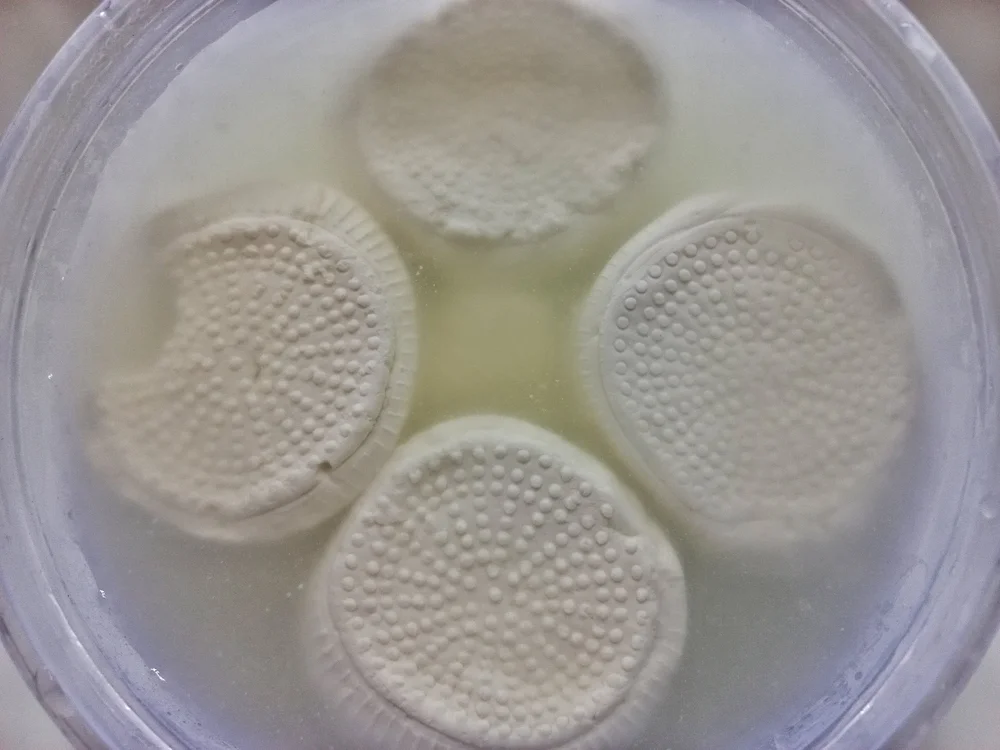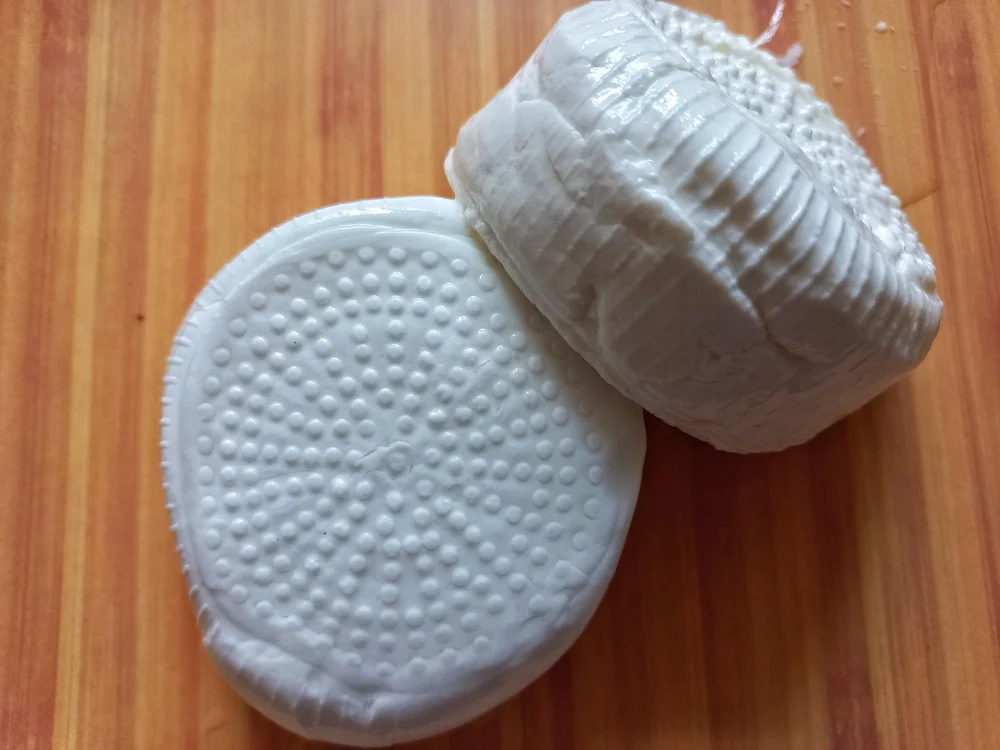Topli nu paneer stored in its own whey
The most influential set of immigrants who shaped Mumbai (erstwhile Bombay), the financial capital of India, are the ‘Parsis’. They are Zoroastrians who fled Persia in the 7th century CE to escape religious persecution. The Parsis first landed in Gujarat and then eventually arrived in Bombay. Only in the hearths of Parsi homes can one find a special kind of cottage cheese — the topli nu paneer.
What is topli nu paneer?
The topli nu paneer is served as roundels. They are soft and moist to the touch and mildly salty in taste with a note of tang. The most distinctive feature of the cheese is the impressions on its surface— a result of shaping the cheese in cane baskets. The word topli is in fact the Gujarati word for basket.
How to Make topli nu paneer
Delna Tamboly photo courtesy of Delna Tamboly
To prepare this cheese, one needs to add rennet to lukewarm milk. Once the milk is curdled it is passed through a muslin cloth. The strained whey released is collected in a bowl. The curds are then scooped and put into sieved wicker baskets. Here the cheese is shaped and rested. At regular intervals it is flipped. Finally, the cheese discs are placed in their own whey and refrigerated overnight.
Connoisseurs may or may not choose to add salt. Author and anthropologist Niloufer Ichaporia King wrote about this cheese in the chapter “Project Basket Case” in the book Eat, Live, Pray: A celebration of Zarathushti culture and cuisine. She wrote that according to her aunt, topli nu paneer should be made with animal rennet like dried chicken gizzard linings.
Many are of the view that the use of plant rennet snatches the tartness of this cheese. “In India topli nu paneer originated in the villages of Surat in Gujarat. It is also known as Surti paneer,” says Delna Tamboly, a resident of Dadar Parsi Colony in Mumbai. Tamboly is an expert of topli nu paneer and is into the business of making and selling the paneer for 18 years. “During my childhood, an old man used to carry it in an aluminum milk cannister, put his hands in and pick out these tiny dumplings and put it into our container at our doorstep,” she reminisced.
How to enjoy topli nu paneer
Topli nu paneer sprinkled with some roasted cumin powder
Tamboly points out that topli nu paneer cannot be savored like the typical Indian paneer as the former is stored in its own whey and eaten directly. If you want to add an Indian twist, “sprinkle it with roasted cumin powder.” According to Tamboly it can also be enjoyed by crumbling it over watermelon salad.
“In weddings, or Navjotes (ritual through which an individual is inducted in Zoroastrian religion), you will find topli nu paneer on the menu,” says Roxanne Bamboat, a travel consultant and writer who also runs a home catering business where she offers quintessential Parsi dishes like dhansak, patra ni machhi, salli chicken and more. She gets descriptive adding, “it will have the same texture of perhaps buffalo mozzarella or a slightly bigger bocconcini cheese.”
When it comes to topli nu paneer, the connoisseurs get creative. Bamboat’s grandmother had her own improvisation. “She used to take a slice of Monaco biscuit, cut up the paneer and place it on top with a glazed cherry and serve it as an appetizer.”
Finding topli nu paneer
Topli nu paneer
Mumbai is known for its Irani cafes — heritage cafes that are run by Zoroastrian and Muslim families whose ancestors had migrated to India from Persia (Iran) in the late 19th century. Typically, these cafes serve Parsi food. But none of them have topli nu paneer on their menu. Neither is it sold over the counters in local shops or supermarkets. “These are best ordered from individuals as they are easily perishable and hence should be consumed as soon as possible,” says Tamboly.
Tamboly takes advance orders and makes topli nu paneer in small batches. She dispatches the paneer within Mumbai through same- day delivery services. Right now, she is one of the last remaining bastions protecting the cheese from going into extinction. If you are in Mumbai and interested in tasting topli nu paneer, get in touch with Delna Tamboly at +91 9820660994.
